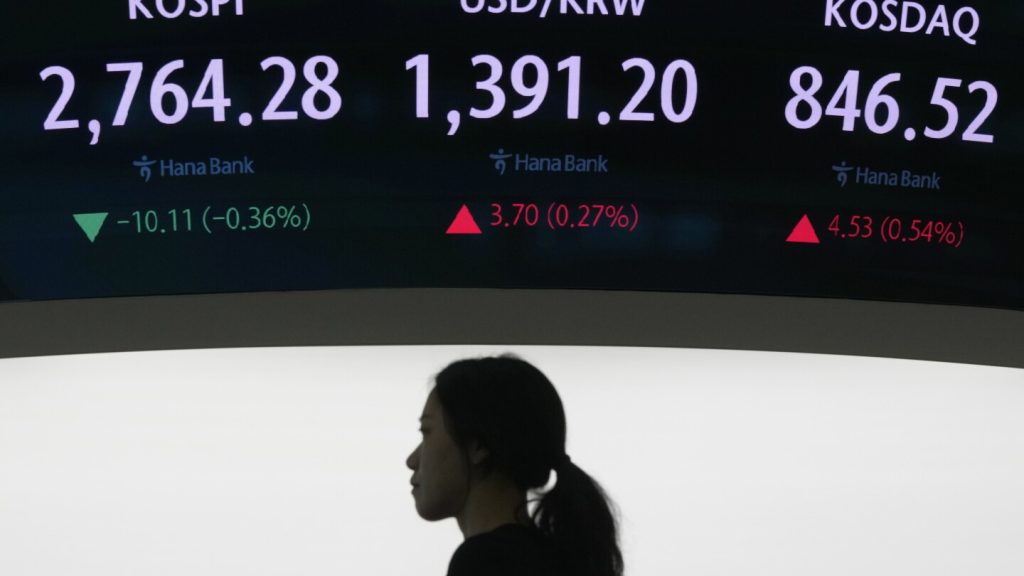Asian shares were mixed on Wednesday after Nvidia’s rebound boosted a weakened Wall Street. Japan’s Nikkei rose 1.4% due to strong demand for technology shares driven by enthusiasm over Nvidia and artificial intelligence. However, Chinese shares retreated, with Hong Kong’s Hang Seng falling 0.1% and the Shanghai Composite index slipping 0.5%. Australia’s S&P/ASX 200 also declined by 0.9%. On Tuesday, the S&P 500 rose 0.4% near its all-time high, while the Dow Jones Industrial Average dropped 0.8% and the Nasdaq composite jumped 1.3%.
Nvidia’s climb of 6.8% helped prevent the S&P 500 from falling on Tuesday, as the chip company’s shares saw their worst three-day losing streak since 2022. The company has become one of Wall Street’s largest and most influential companies, with high demand for its chips driving the U.S. stock market to records. This AI boom, however, has raised concerns of a possible market bubble and overly high investor expectations. SolarEdge Technologies fell 20.6% after a customer filed for bankruptcy, questioning the solar-power company’s potential collections.
Sales at retailers have been fluctuating recently, reflecting the struggles of lower-income customers to cope with rising prices. However, the job market remains solid, with upper-income households showing better performance by booking trips on cruise ships. Carnival’s stock rose 8.7% after raising its profit forecast for 2024. The S&P 500 rose 21.43 points on Tuesday, while the Dow dropped 299.05 and the Nasdaq composite jumped 220.84. Falling yields have eased pressure on the stock market, as hopes of slowing inflation may prompt the Federal Reserve to cut interest rates later this year.
The Federal Reserve has been maintaining high interest rates to control inflation, with hopes that a timely rate cut could prevent an economic slowdown from turning into a recession. U.S. benchmark crude oil rose to $81.12 per barrel on Wednesday, with Brent crude at $85.32 per barrel. The dollar rose against the Japanese yen and remained stable against the euro. Wall Street is optimistic about the Fed making the right decision regarding interest rates to balance economic growth and inflation. Overall, the global markets are responding to various factors, including company performance, consumer confidence, and central bank actions, influencing investor sentiment and market trends.


